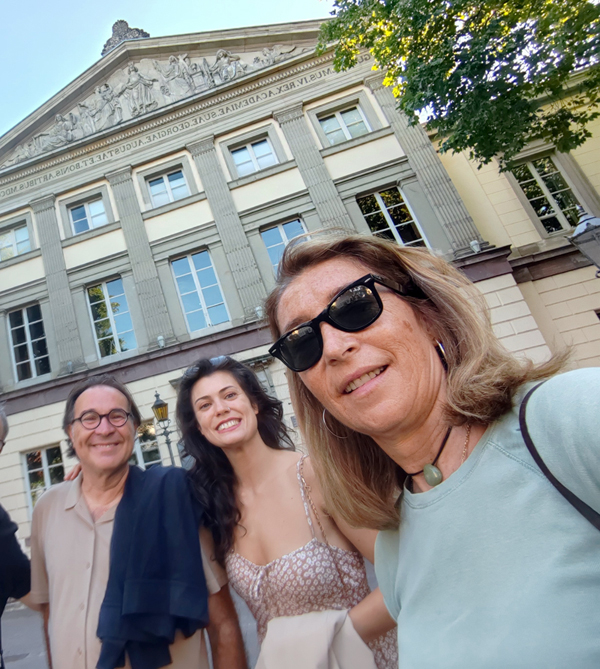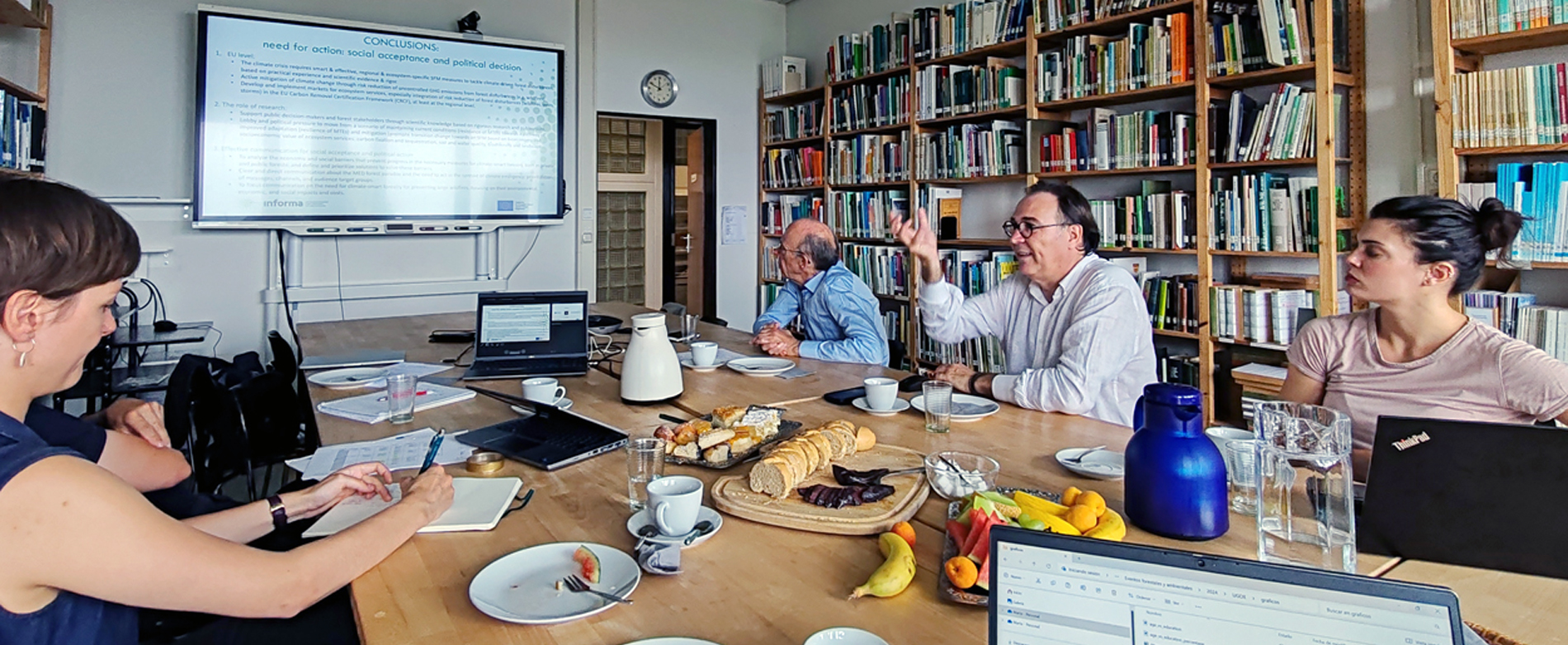In the context of the INFORMA project, funded by Horizon Europe, researchers from the Information Technologies for Climate Change (ICTvsCC) group of the ITACA Institute of the Universitat Politècnica de València (UPV) has strengthened ties with its partners at the Georg-August Universität Göttingen (UGOE), Germany.
Specifically, On 10 July, the UPV coordinating team, led by Professor José-Vicente Oliver and Marta Esteve, visited UGOE to strengthen cooperation in knowledge transfer, an area in which UGOE has made significant progress with its innovative RIU (Research-Integration-Utilization) model.
During the meeting, it was discussed in depth how this model can be integrated into the different work packages of the INFORMA project.
“This approach has shown to be essential to identify and analyse the power relations and interests of the stakeholders involved in forest management, as well as to understand the social perception of sustainable forest management (SFM). These meetings allow project partners to align their strategies and approaches, ensuring that science-based solutions are effectively transferred into practice”, said the iTACA researchers.
José-Vicente Oliver, UPV coordinator for INFORMA, addressed the challenge of forest fires in the Mediterranean region, highlighting the abandonment of rural-forestry activity exacerbated by the climate crisis. Marta Esteve presented the preliminary results of a survey on the social perception of SFM, focusing on the Valencian Region.
These presentations underlined the need to adapt models such as RIU to the specific context of the Mediterranean, which presents unique challenges and opportunities compared to other regions in Europe.
‘INFORMA aims to improve and share the latest scientific knowledge on multipurpose Sustainable Forest Management (SFM) under climate change. Therefore, it is necessary to take into account biogeochemical and forest-climate interactions and to provide long-term economic incentives for the transition to a low-carbon economy,’ the ITACA researchers highlighted.

Michael Kirchener, representing UGOE, explained how the RIU model facilitates the transfer of scientific information to different societal groups. This model focuses on three key components: the production of scientific information, its integration through exchange forums, and its use by stakeholders.
The Social-Milieu Concept
The term ‘social-milieu’ or social environment refers to the context in which individuals develop, considering aspects such as living conditions, work, economy, income level and education. This concept encompasses more than just social class, as it includes relationships and interactions with various people and institutions in everyday life. Individuals within the same social environment often share values, behavioural patterns and a sense of solidarity, which facilitates socialisation and the exchange of ideas.
In the INFORMA project, social-milieu analysis is central to understanding how different social groups perceive and relate to forest management. By better understanding these contexts, the project aims to adapt its communication and knowledge transfer strategies to be more effective and culturally sensitive, especially when it comes to decision-making.
The meeting concluded with an exchange of ideas and a passionate debate on the applicability of the RIU model in the Mediterranean context. Participants agreed that, despite regional differences, there are commonalities that can be exploited to improve management and knowledge transfer in the forestry sector.
This type of collaboration and continuous dialogue is essential to advance research and the implementation of effective forestry policies, adapted to local needs and realities. The INFORMA project thus continues its mission to promote sustainable forest management through cooperation and knowledge exchange.



